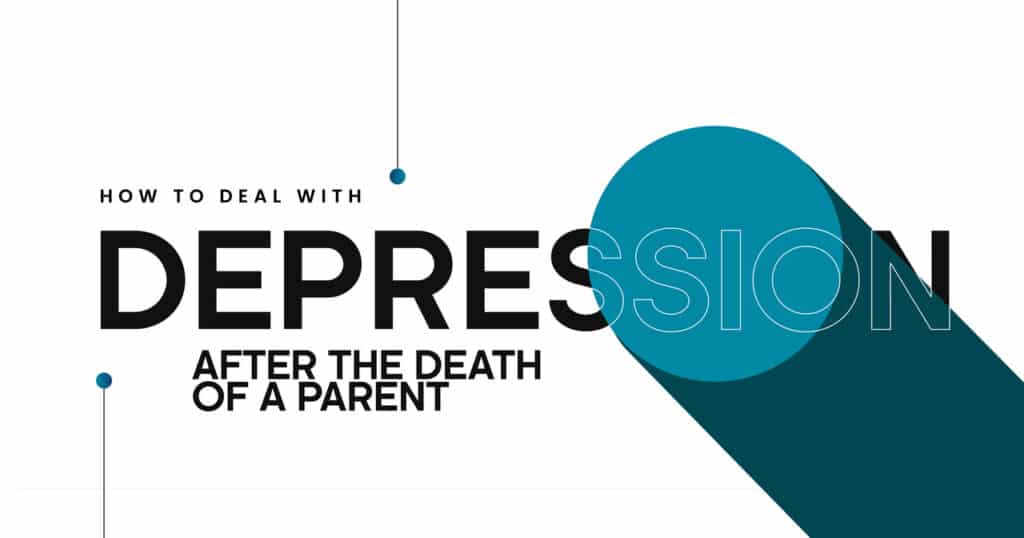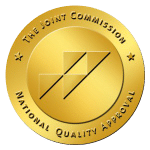The death of a parent is one of the most heartbreaking things a person can go through in their life – crying, getting angry at the events and medical problems that led to the loss, and even denying the death are among the most common consequences that impact the person’s mental wellness after they learn what happened.
In our guide we will explain how to deal with the grief of losing a parent, elaborate on the difference between grief and depression, and illustrate how you can cope with the loss and move on to live a fulfilling life no matter the tragic circumstances.
What Is Depression?
Depression can be defined as a mental disorder that makes the person feel permanently sad. This condition interferes with all daily activities and interests of the individual making it hard for them to function normally – they can no longer pay attention to their family duties or work responsibilities.
It is rather tricky to figure out what causes depression and who is more prone to developing this mental disorder – the circumstances vary from person to person. In most instances, depression does manifest after stressful and life-changing events, especially if they were not processed and discussed with a mental health professional. Yet many people fall ill because the environment, biology, and genes make them likely victims of this illness.
Depression after the death of a parent can occur naturally – some people feel bad about not spending more time with their mother or father, others believe they could have prevented the death from happening, and certain individuals regret not sharing something important about their lives with their parents while they were still alive. Regardless of the circumstances surrounding death and the closeness between the parent and their child, depression symptoms may appear, and it is essential to distinguish it from grief and eliminate the signs of potential depression early so that it does not ruin the person’s life.
How to Tell the Difference Between Grief and Depression
While grief after losing a parent and depression are often mistaken for each other, these are different stressful situations – see more about their specific characteristics in the table:
| Grief | Depression |
| Caused by the death of a loved one | Caused by a variety of events – for example, a person who suffered from physical and mental abuse may develop depression later in life |
| Loses its impact over time – although it is hard to predict how long the mourning period for parent will last, it is possible to return to a sense of normalcy within weeks | Continues to burden the individual no matter how much time has passed |
| More predictable triggering circumstances – for instance, the birthday of a deceased parent may lead to a new wave of grief | It is harder to pinpoint what triggers a depressive episode as well as identify what caused the depression in the first place |
| Suicidal ideations are related to the person who died – an individual dealing with grief may want to join them instead of leaving the world behind | Suicidal thoughts are tied to the idea of abandoning the world instead of thinking about what may happen in the afterlife |
Is Depression After the Death of a Parent Common?
It is very common – moreover, completely natural – to exhibit the symptoms of depression after the loss of a parent. When you lose someone close to you – and if it is your parent, you have known them your entire life, and it is not an exaggeration – the pain and sadness can be overwhelming and do not leave your mind and body incapacitating you for a significant time.
Grieving the loss of a parent is inevitable for most individuals yet do not isolate yourself from the world – even if you cannot see dangerous signs in your behavior, others will be able to notice the symptoms of depression developing after you are incapable of bouncing back to your normal self after several weeks of grieving. Your family members and friends should recognize if the grief turned into depression and advise you to seek professional help to be sure grief does not transform into a debilitating mental disorder as well as to know you will not harm yourself or others in a particularly difficult moment.
Signs of Depression After the Death of a Parent
If you or someone you know well has recently experienced the loss of one or both of their parents, be on the lookout for the following symptoms that may indicate the presence of depression:
| Sign | Depression |
| Focus on the Tragic Event | The death is the only thing on the individual’s mind – they cannot move on, they think and talk about it non-stop, and they neglect all other responsibilities and activities |
| Lack of Concentration | When you are sad and grieving, it is difficult to focus on your job or studies, but after a short while, you can overcome the sadness and carry out your duties as usual; depression, on the other hand, will prevent you from doing that for months |
| Inability to Accept What Happened | Denial and disbelief are common signs of depression after the parent dies – a person cannot understand that it occurred especially if the death was sudden or they were involved in a traumatic accident together with the child surviving |
| Isolation, Numbness, and Detachment | Self-inflicted loneliness and lack of emotion frequently mean the development of depression in the grieving person’s mind |
How to Begin Healing After a Loss
- Be Gentle With Yourself
Do not rush the grieving process. From crying all night to letting your relatives and friends take care of you because your pain is too unbearable – there is no right or wrong way to grieve, and you should do what works best for you and prioritize your feelings at least for a short while.
- Reach Out to Other People
There is nothing harmful in making time for yourself and spending a day alone reminiscing about your parent and processing the sadness. Nevertheless, completely cutting contact with other people and refusing their attempts to help you will do you no good in the long run – your relationships with your loved ones should withstand even the most difficult loss.
- Do Meaningful Things to Celebrate Your Parent
Turn your pain into a bittersweet celebration. You can channel your feelings into creating art, travel to visit cities where your parents lived when they were kids, go to places you were with your parents together, and arrange gatherings for your family where you talk about the life of your parent and share pleasant memories.
- Accept Your Pain Yet Do Not Let It Define You
While your life might have changed forever and the grieving pain of losing a mother or a father will remain in your heart, it does not mean that is all that is left. There is still so much to live for, experience, embrace, and enjoy – open yourself to new possibilities and move forward with warm memories and eternal love.
- Talk to a Therapist
Private counseling or group therapy where people talk about their grieving can be the solution for you if the pain just does not go away. A qualified therapist will be able to guide you while you are recovering from loss and advise you to practice various relaxation techniques to bring back balance to your mind.
FAQs
- Can you heal after losing a parent?
No matter how strong the pain is today, healing is possible. Give yourself time to reconcile with the loss, practice self-care to enjoy a safe space in your home, and rely on the company of others to entertain you and listen to you when there is a need to open up about your suffering.
- Am I depressed if I am grieving a parent?
The loss of a parent does not necessarily mean you struggle with depression; however, if the grief does not go away and even grows stronger or if you were diagnosed with depression prior to the traumatic event, be on the lookout for signs of depression after death of a parent.
- Is it normal to experience postponed grief?
While the expectation you may have is the enormous sadness right after your parent dies, in some instances the magnitude of this loss does not feel real until many years later. Some people feel sad and lonely directly after the loss yet the depression after a death of a parent may only reach them long after.
- How long does grieving a parent last?
There is no universal timeline for grief – some people fully recover within a few weeks and their loved ones can tell they are back to their normal self, while other individuals feel sharp pain in their chest for months after the death. Either way, the sense of loss may remain forever even though it does not always burden the person.
- How to recognize if someone needs help after the death of their parent?
If you believe a person you know well has not responded well to their loss, they are isolating themselves from society, they stopped eating and sleeping properly, and their only wish is to reunite with their dead family member, they may be in trouble. Offer your support and ask them to consider professional mental health help.











